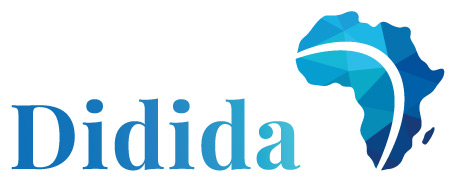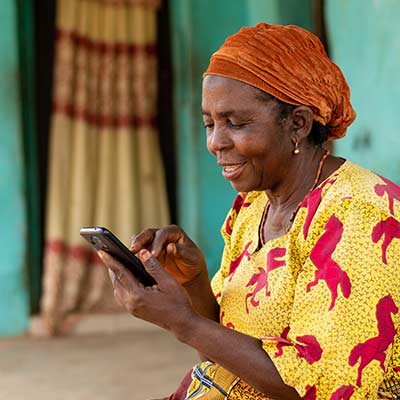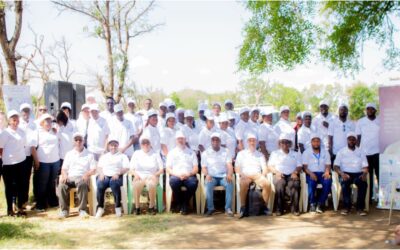Improving disease diagnostics in Africa
DIDIDA, or Digital Innovations and Diagnostics for Infectious Diseases in Africa, is a European Union and United Kingdom Research and Innovation funded project developing reliable, low-cost and mobile phone-connected tests to help detect multiple diseases at once in sub-Saharan Africa.
This collaborative project between Europe and Africa also aims to strengthen research and innovation capacity in Africa through training, staff exchanges, PhD scholarships and events.
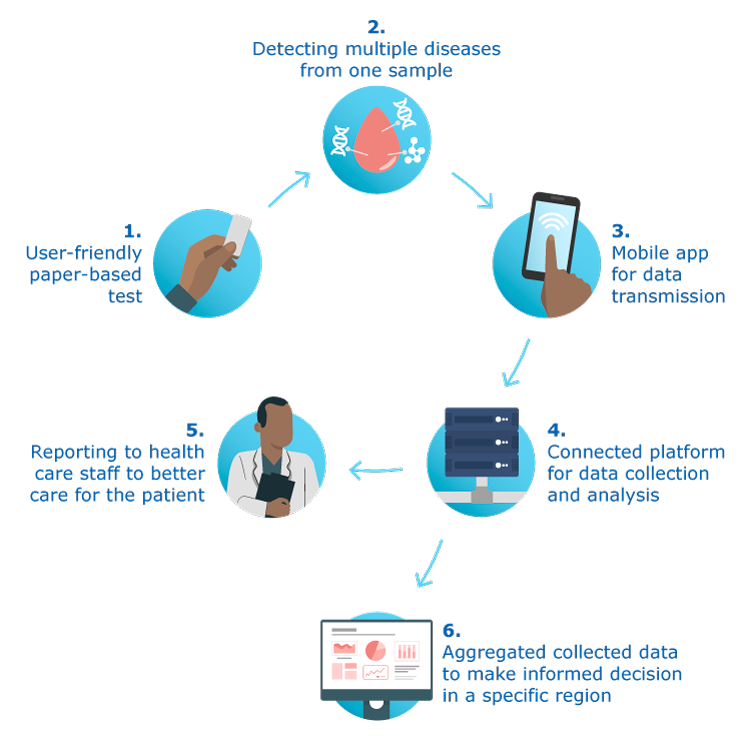
The DIDIDA project
1
Detecting multiple diseases at once with new, highly sensitive tests
2
Collecting data and assisting health professionals with app-linked diagnostics
3
Improving research capacity in Africa through collaboration

About the consortium
The consortium has been drawn together to provide the expertise and momentum to deliver a step change in infectious disease diagnostics, digital medicine and mobile health technology.
Key figures
Countries involved from Europe and Africa


6M€ from EU and 2M€ from UKRI
PhDs funded


Project delivery
News & Events
DIDIDA in action: community, culture and digital health in Chekereni
DIDIDA in action: community, culture and digital health in ChekereniThe Digital Innovations & Diagnostics for Infectious Diseases in Africa (DIDIDA) project is built on a simple conviction: innovation in diagnostics and digital health can only succeed if it is...
AI-Powered Malaria Diagnostics: How Real-World Innovation in Kenya is Shaping the Future of Connected Health in Africa
AI-Powered Malaria Diagnostics: How Real-World Innovation in Kenya is Shaping the Future of Connected Health in AfricaIn many parts of sub-Saharan Africa, malaria remains one of the most persistent public health challenges — a disease that not only claims lives but...
Digital Innovation Meets Climate & Health: DIDIDA at the EDCTP Forum 2025
🌍 Digital Innovation Meets Climate & Health: DIDIDA at the EDCTP Forum 2025Kigali, Rwanda – 17 June 2025 On 17 June 2025, the DIDIDA consortium hosted a successful symposium at the Global Health EDCTP3 Forum in Kigali, Rwanda, bringing together researchers,...
Infectious diseases remain the leading cause of death in Africa, while non-communicable diseases are on the rise
At the same time, NCDs are putting increasing pressure on healthcare services. Non-communicable diseases (NCDs) such as cancer, cardiovascular disease and diabetes are increasingly becoming the leading cause of death in sub-Saharan Africa.
Improving detection and prevention tools is an important measure to reduce the growing burden of these diseases, especially in areas far from health care centres.

What are infectious diseases?
Infectious diseases are caused by micro-organisms: bacteria, viruses, parasites and fungi. They can be transmitted directly or indirectly from one person to another, for example through insect bites, ingestion of contaminated water or food…
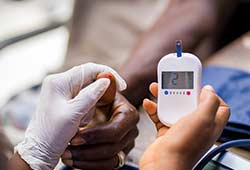
What is the burden of non-communicable diseases?
Non-communicable diseases such as cancer, cardiovascular disease and diabetes are increasingly becoming the leading cause of death in sub-Saharan Africa. They were responsible for 37% of deaths in 2019, up from 24% in 2000 according to the WHO…
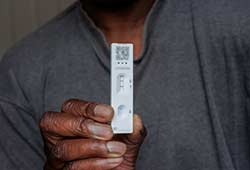
What is a lateral flow test?
Lateral flow tests are a fast, reliable and low-cost tool for disease testing. A swab is taken and mixed with an extraction fluid, then a drop of this mixture is placed in a a small device. If protein or nucleic acid (DNA or RNA) of a disease is detected, a red line appears…
Want to know more?
Are you a student and you want to learn more? A researcher seeking to consult our publications? A citizen eager to better understand the issues? A decision-maker who can promote this innovation? A journalist looking for an engaging story to tell?
